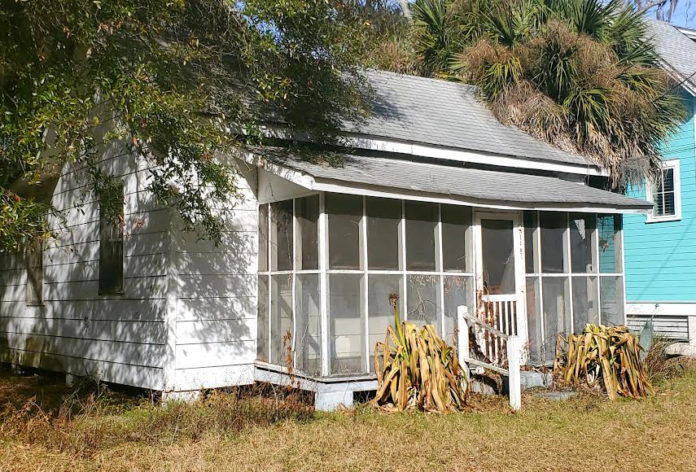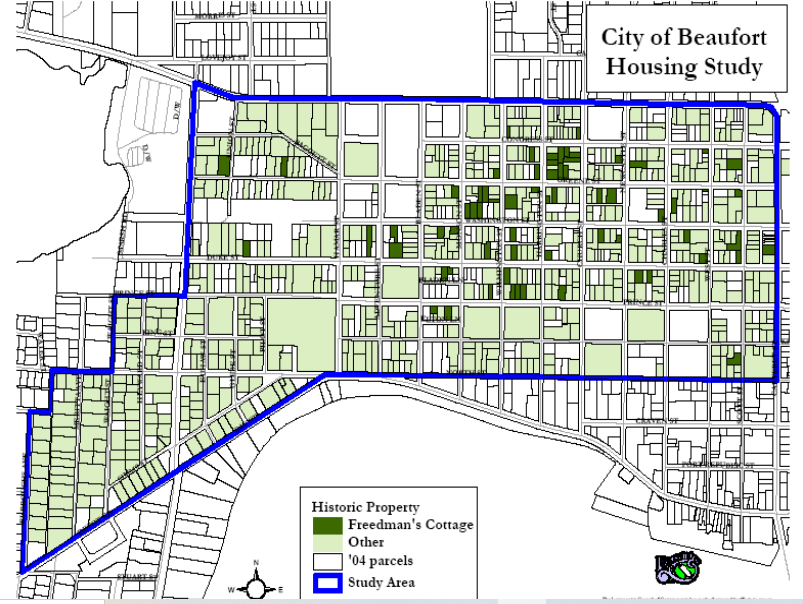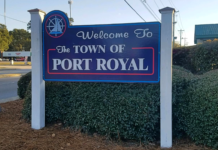
Stewart Family Office announces a $100,000 revolving fund to assist heirs and freedman’s house owners in the NW Quadrant of Beaufort. Freedman’s cottages are a specific architectural type built by previously enslaved people.
A $100,000 revolving fund has been established by a Beaufort developer to assist residents of the Northwest Quadrant of the city in keeping heirs property and homes in their families. This includes “freedman’s cottages,” built by freed slaves who settled in the part of the city after the Civil War.
Dick Stewart, local developer and philanthropist, announced the initiative last week in a press release. The funding, Stewart says, comes as the number of parcels in Beaufort County and in the National Historic District in Beaufort that is owned by heirs is in decline.
Dick Stewart said this revolving fund is expected to be the first of several initiatives to address this challenge. The fund will provide financial assistance to families seeking to retain ownership of their land and buildings.
According to Stewart, the ownership and use of family homes and property has proven to be the single best path to the creation of inter-generational wealth in the history of the United States. Stewart says this includes several existing freedman’s house in the city.
Stewart and his Stewart Family Office are establishing this fund to work with families, freedman’s house owners, property owners and others that are actively engaged in assisting heirs and families to retain and use their property. The number of parcels of heirs owned properties in Beaufort County and in the National Historic District in Beaufort has been decreasing. We hope to assist in slowing or stopping this trend.
We envision a time when parents can stand with their children in front of a parcel of property and say to those young people, “this is where your ancestors, just out of slavery, bought this plot of land, built a home and started the family that led to us,” the press release said. “Believe that you are descended from people who overcame adversity and made success.”
Right here in Beaufort is the grave of Robert Smalls, an American hero and a freed slave from Beaufort that became a congressperson. One of his most famous quotes is, “My race needs no special defense, for the past history of them in this country proves them to be equal of anyone. All they need is an equal chance in the battle of life.”

Why now?
According to Stewart, the time is right. Things are changing and the risk of property loss is increasing.
In recent years, the Reconstruction Era National Park has opened headquarters in Beaufort. The headquarters of the federally designated Gullah Geechee Cultural Heritage Trail is moving to Beaufort across Craven Street from the National Park Headquarters. Mather School and Penn Center offer a special opportunity to learn how education can elevate the lives of individuals and families. And memorials to Robert Smalls and Harriett Tubman share stories of courage, daring, hard work and success.
The Institute for the Study of the Reconstruction Era (“ISRE”) has been established at the University of Suth Carolina Beaufort. The ISRE is working on a grant funded project entitled “THE REACH OF RECONSTRUCTION: CONNECTING PEOPLE, PLACES, FAMILIES AND HISTORY.” We hope this will connect people to families lost through the fog of slavery and time.
To fully understand the complexities of heirs property, you need to examine its origins. At one time, in South Carolina, the number of slaves outnumbered white slave owners. As a result, after emancipation, many slaves chose to remain in the area of their enslavement. Some of the slaves were given land by their owners, or they acquired abandoned land; others, through hard work and dedication, were able to purchase land. The land in turn, began to be transferred from relative to relative within families for generations for over 150 years. Part of the problem is that heirs property is that it is entangled with the legalities because it does not always meet traditional contractual standards of legal land ownership.
Please send applications to:
Dick Stewart
Stewart Family Office
2015 Boundary Street, Suite 317
Beaufort, SC 29902
Or email to ds@stewartfo.com
Learn more about heirs property and the trouble that some families have in keeping it.









